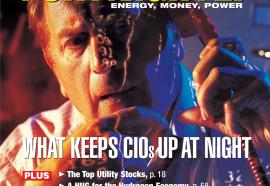The High Cost of "Free" Capacity
Fickle behavior by LSEs threatens to destabilize organized markets.
Dodging capacity payments might become an art form among load-serving entities and large electric consumers, as evidenced by Duquesne’s plan to exit PJM, as well as alternative market-designs proposed by large users. But such behaviors might only serve to disrupt organized markets and cause a return to full regulation.







